10 Things Every Student Should Know About Acadia University
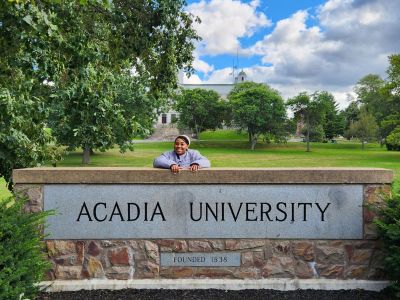
Angel Percentie (she/her) is a fourth-year English honours student who loves getting involved on campus. She is a resident assistant, peer writing tutor, student content creator, and editor of Estuary, Acadia’s creative arts magazine.
So, you’re thinking about university, and you want to know why Acadia should be your top choice. Well, I’ve been exactly where you are now, and there are a few things that made my decision a little easier. I knew I wanted to attend a university just far enough from home to immerse myself in a different culture, but close enough that it felt familiar. Growing up in the Bahamas, community has always been very important to me; that meant choosing a smaller campus where I got to know people beyond a passing hello. Acadia was already on my radar, but when a family friend told me that she had spent some of the best years of her life in Wolfville, singing in the Manning Memorial Choir, eating Scott Skins at Joe’s, and walking along the Dykelands, I had to experience it for myself.
If you’re curious about what makes Acadia a great place to study and live, here are 10 things every student should know about Acadia:
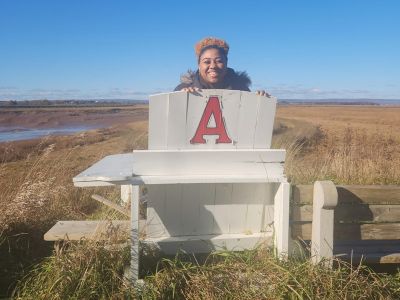
1. Acadia University is located in the heart of Wolfville
I still remember the first time I drove into town—the greenery, the bustle on Main Street, and the peak of Crowell Tower looming as campus came into view. In almost every display window were signs like ‘Acadia students welcomed’ and ‘10% off’ for students. It felt like a pre-welcome party before Orientation. That day made me realize that university is much more than a degree. It’s the place you’ll live, the people you’ll meet, and the cafés you’ll frequent during peak midterm season. In Wolfville, I found a sense of community everywhere, from the farmers’ market and community oven to running/hiking trails and local diners.
2. With hands-on learning, you’ll gain real world experiences
Before coming to Acadia, I thought English Literature was simply reading and writing. I expected to improve at both, but I never anticipated how much my ideas would grow thanks to my professors. They challenged my idea of what it means to study English.
One of my most engaging courses was Dr. Laura Robinson’s Honours Seminar on Adapting L.M. Montgomery’s Anne of Green Gables. We explored how adaptations transformed the precursor text and later shared our research on the Maudcast with Dr. Brenton Dickieson. The class was so immersive that it made me envision what my future as an English major could look like.
3. Classes are smaller, fostering 1-1 interactions with professors who know students by name
The perks of going to a smaller university include getting the most out of lectures, engaging in hands-on discussions, and having quality interactions with professors. Some of my best essays have stemmed from staying back a few moments to chat with a professor during office hours. And because classes are smaller, we get to experiment with the ways we learn. For instance, in one of my courses, we used Twine— an interactive, text-based digital story— to develop a theoretical argument. Now, I’m always thinking of different ways people respond to literature, its role, and how to make it more accessible. I’ve grown a lot as a student, and it started with learning in a smaller class, with professors who challenged my creative boundaries.
4. Acadia is a place for everyone
Inclusivity is a campus-wide value. Acadia supports students with diverse needs that run the gamut from dining accommodations for students with dietary restrictions to a scent-free policy that protects those with sensitivities. Additionally, Equity, Diversity & Inclusion programs, resources, and initiatives promote anti-racist and anti-discriminatory spaces so all students can belong.
It may not seem like a lot but attending a university that serves special meals that cater to gluten and dairy allergies made my experience a thousand times better.
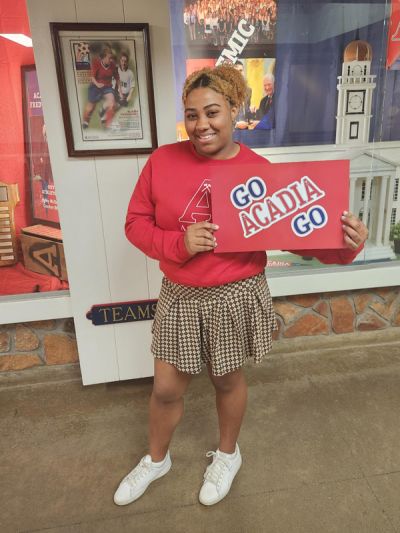
5. Athletics and Acadia are two words that just go together
Athletics are a big part of Acadia, with varsity teams competing across seven different sports. I know this because I’ve made it a point to attend at least one event for each team. I bring my friends and we rep our blue and red Acadia gear. Each experience is something to remember. For example, my first hockey game. I was so clueless I couldn’t keep my eyes on the puck, yet I kept smiling because the energy felt tangible. It was a great way to build school pride.
And if you want to get involved in a recreational activity, the Athletics Complex consists of an indoor walking track, spin studio, squash and racquetball court, hockey arena, and volleyball and basketball court. My personal favourites are the fitness classes and intramural sports like volleyball and basketball.
6. Scholarships, bursaries and financial aid opportunities help lessen the load
University can be expensive, so it’s important to choose a school that invests back into you. When I applied as an international student, I knew that meant paying larger fees. Luckily, I’ve been able to apply for scholarships each year in my department and other community-focused bursaries.
In the 2024-2025 academic school year, nearly 2,000 students received over 4,000 awards, and I’m happy to be one of them.
Fun fact: Incoming students are automatically considered for entrance scholarships as soon as they apply. So be sure to maintain at least an 80% average in grades 11 and 12.
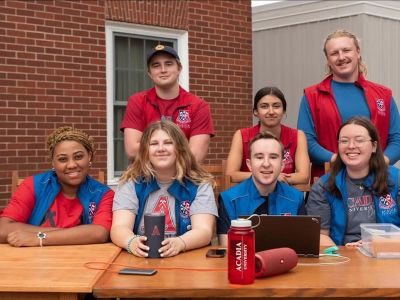
7. There are lots of residence houses and supportive RAs that come along with them
It’s important to find a community that you feel comfortable in. With 11 residence buildings, including options with accessibility accommodations, there’s a place for everyone on campus. Are you a sophisticated music major? Seminary House is the perfect fit. More of a social butterfly? Dennis or U 55 are spaces to meet friends of similar interests. Maybe you just want a group of sisters to bond with for life? Whitman House (Tully) is a residence for female-identifying students.
In my first year, I chose Tully because I wanted to make friends. I felt a bit shy at first, but attending events like the Tully Tea Party, record painting, and movie nights made it easier to form a tight-knit community.
What made residence even more special were the resident assistants (RAs). Each building has a team of RAs, who shape the environment through a curricular approach to programming and events. My RAs helped me navigate university, so wanting to do the same, I became one in my second year.
8. Student resources (AKA your student survival kit) are there to help you thrive
Every student needs a support system, whether it’s academic advising, health and wellness support, or resources that help you outside of the classroom. Have a question about your student visa? The Wong International Centre can help. Need academic support? There are tutoring services like the Writing Centre and the Acadia’s Math & Stats Help Centre (MASH). There are even resources that support accessible learning, spiritual wellness, and career opportunities.
Learn more about campus resources and how they can help you!
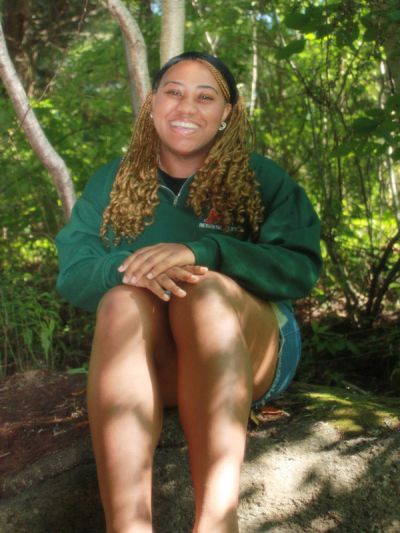
9. Getting involved is easy with options ranging from academic clubs to student led societies
One of the best ways to meet new people and explore a new passion is by joining one of the 80+ clubs on campus. These clubs range from academic to cultural and non-varsity sports clubs. Two of my favourites when I’m feeling a bit homesick are Sisters of Color (SOC) and The Caribbean Student Union. I’m notorious for belting Kelly Clarkson’s “Since U Been Gone” at the annual SOC Slumber Party, and I never skip a Caribbean event, especially when there’s food!
Click here to explore the many clubs and societies Acadia has to offer.
10. Seasonal events at Acadia make for the best university experiences
From the last glimpses of summer to the colourful falls and white winters, Acadia experiences one of the most beautiful seasonal changes a university can offer. But it’s not just the scenery that keeps our attention—it’s the events that make them special: ice cream at The Real Scoop, apple picking at Noggins, pumpkin carving competitions in residence, and hot cocoa after the first snow. Events like these made my university experience memorable.
BONUS: Applications are officially open!
If you like what you’ve heard and you’re excited to start your journey at Acadia, don’t wait. Apply today for an education you can take with you wherever you go, and a campus that feels more like a home.
